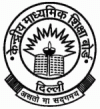CBSE: Protection of Children from Sexual Offence (POCSO) Act 2012
Disclaimer: This website is NOT associated with CBSE, for official website of CBSE visit - www.cbse.gov.in
Central Board of Secondary Education
CBSE: Protection of Children from Sexual Offence (POCSO) Act 2012
All children have an equal right to access education in an environment that is safe, protective and conducive to the overall development. The challenges of gender inequality, eve teasing and sexual abuse in school environment call for increased awareness and creating synergy among parents, teachers and schools.
In order to ensure strict compliance of the Protection of child from sexual offence (POCSO) Act 2012, CBSE has taken several initiatives and actions for creating awareness about sexual exploitation among the school children.
Gender sensitive Learning Material
Under the Continuous Comprehensive Evaluation (CCE) Scheme, 23 modules based on Life Skills have been prepared for the trainers to give an insight to the growing up issues, managing emotions, gender, social and other issues of discrimination.
Reinforcing its commitment towards gender sensitivity and equality, CBSE has developed Educator’s Manual and Cards on Gender sensitive teaching in classes’ 1-XII. The Manual is designed to be a practical guide for making teaching and learning processes gender friendly. A new elective subject at +2 is also being provided as Human Rights and Gender Studies to reinforce gender equality and harmony.
Role of Schools
1. Teachers, Management and all employees of institutions need to be made aware about the provisions of the Act, some of which cast a duty on them to report instance of child abuse, as in Sections 19(I) and 21.
2. In- house induction sessions should be held for all teachers to include a specific module on gender sensitization.
Sexual offences committed by the persons who are in the ownership, management
of staff of education institutions and persons in positions of Trust and
Authority over children are liable for higher punishment as per the
provisions of the Act.
3. School/Classroom Environment Schools must ensure and promote a harmonious school/classroom environment and inclusiveness.
4. Provision for guidance and counselling facilities in schools
Teachers in general should be trained to attend to adolescent (gender) related
issues, conduct of adolescent education programmes and special
activities that promote gender equality and sensitivity.
5. Programmes for empowerment of girls Camps on sensitization of girls on health and sanitation issues, karate/ self defence training of girl students should be conducted at regular intervals. Programmes like folk dance, nukkad natak, poster competitions, quiz, debate, exhibition can also be conducted to foster gender equality.
6. In Residential Schools Training programmes for House Masters / House Mistress that inter-alia, cover emotionally disturbed students, counselling of students and preparing children for meeting challenges of adolescences. Personal care and guidance to girl children needs to be given, female Matron be provided for girls’ dormitories.
7. School Complaints Committee consisting of Principal/Vice- Principal, one male teacher, one female teacher, one female student, one male student and one non-teaching staff member must be set up to serve as complaints and redressal body.An improved response system and alert administrative machinery is required to take immediate action on reported cases of misbehavior.
8. Complaint / Suggestion box should be provided in each school so that students can make written complaints. Any complaint of sexual abuse, whether received through the drop box or otherwise needs to be acted upon immediately.
9. Provision for CCTV cameras should be made in school premises at all strategic places along with the warning.
10. Monitoring and Identification Close monitoring of academic performance and psychological behaviour particularly in cases of sudden decline in performance, lack of interest, depression and aloofness should be noticed to give proper counselling to the children.
Informal conversations with the students by way of discussions with peers and planned observations in hostels, classrooms and playground can also be helpful.
11. Toll Free number and child helpline may be provided and made known
and displayed on notice board along with names of teachers designated to handle
such cases. Centralised Child helpline number 1098 must be
popularised and displayed at prominent places in the schools.
School management and staff are expected to create awareness and participate in averting such offences as part of their foremost duty.
Click Here for Full Information
Click Here for Suggestive Material-1
Click Here for Suggestive Material-2
Click Here for Suggestive Material-3
Courtesy: CBSE
